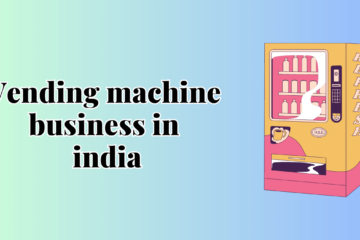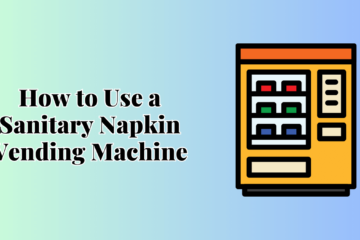In recent years, with growing concerns about water quality and environmental sustainability, the demand for clean drinking water has significantly increased. Water vending machines have emerged as a practical and innovative solution to address this demand. This article explores the concept of water vending machines, their benefits, working mechanisms, and their impact on public health and the environment.
What is a Water Vending Machine?
A water vending machine is a self-service kiosk that dispenses filtered and purified drinking water. These machines are often located in public spaces, commercial areas, educational institutions, and even residential complexes. Users can fill their water bottles or containers with fresh, clean water through a simple and user-friendly process.
Benefits of Water Vending Machines
a. Convenient Access to Clean Drinking Water
One of the primary advantages of water vending machines is the ease of access to clean drinking water. In urban areas with limited access to fresh water sources, these machines provide a reliable and convenient solution for people on the go.
b. Cost-Effective Solution
Water vending machines offer an affordable alternative to purchasing bottled water. Users can refill their containers at a fraction of the cost of buying bottled water, making it an economical choice for many.
c. Environmentally Friendly
With increasing awareness of plastic pollution, water vending machines play a vital role in reducing plastic waste. By encouraging people to use reusable containers, these machines contribute to a greener and more sustainable environment.
d. Customizable Options
Water vending machines can be equipped with multiple filtration options, such as reverse osmosis, UV sterilization, and carbon filters. This versatility allows users to choose the level of purification they desire, catering to individual preferences.
How do Water Vending Machines Work?
Water vending machines employ a series of processes to ensure the delivery of safe and purified drinking water.
a. Filtration System
The first step in the water vending process is filtration. The water passes through various filters, removing impurities, sediments, and harmful contaminants, making it safe for consumption.
b. Payment and Dispensing Mechanism
Users can access the water by either inserting coins, using smart cards, or making digital payments. Once the payment is processed, the machine dispenses the desired quantity of water into the user’s container.
c. Maintenance and Hygiene
Regular maintenance and hygiene are crucial to the smooth functioning of water vending machines. Providers must ensure frequent filter replacements, machine sanitization, and quality checks to deliver safe drinking water consistently.
The Growing Popularity of Water Vending Machines
The increasing popularity of water vending machines can be attributed to several factors. One of the key drivers is the rising health consciousness among consumers. People are opting for cleaner and safer drinking water options, and water vending machines fit the bill perfectly.
Additionally, the convenience of accessing water on the go without the need to carry heavy bottled water has made these machines a favorite among urban dwellers.
Water Vending Machines and Public Health
a. Ensuring Water Quality
Public health is a primary concern when it comes to drinking water. Water vending machines must adhere to strict quality standards to ensure the water’s safety and purity. Regular testing and compliance with FDA and NSF regulations are essential.
b. Reducing Plastic Waste
The excessive use of single-use plastic bottles has become a major environmental problem. Water vending machines promote sustainability by encouraging the use of reusable containers, reducing plastic waste significantly.
c. Promoting Hydration
Water vending machines offer a constant supply of clean drinking water, encouraging people to stay hydrated throughout the day. Proper hydration is essential for overall health and well-being.
Different Types of Water Vending Machines
a. Bottle Refill Stations
Bottle refill stations are a common type of water vending machine found in public places like parks and shopping malls. They allow users to refill their water bottles quickly and conveniently.
b. Coin-Operated Vending Machines
Coin-operated vending machines are straightforward to use. Users insert coins, and the machine dispenses the desired amount of water.
c. Smart Card-Enabled Machines
Smart card-enabled machines offer a cashless payment option. Users can load money onto a smart card and use it to access water from the vending machine.
d. Mobile Water Vending Units
Mobile water vending units are designed to reach areas with limited access to clean drinking water. These units can be transported to different locations to cater to varying demands.
Water Vending Machine Regulations and Standards
To ensure the safety and quality of water provided by vending machines, regulatory authorities have established strict guidelines and standards.
a. FDA Compliance
The U.S. Food and Drug Administration (FDA) sets guidelines for the safety of bottled water, which also apply to water vending machines. Compliance with these regulations is crucial to operate legally.
b. NSF Certification
The National Sanitation Foundation (NSF) provides certification for water treatment products, including vending machines. NSF certification assures consumers that the water they are consuming meets high health and safety standards.
c. Local Health Department Regulations
In addition to federal regulations, water vending machine providers must adhere to local health department guidelines to ensure their operations comply with regional health standards.
Incorporating IoT and Technology in Water Vending Machines
The integration of Internet of Things (IoT) technology has brought significant advancements to water vending machines.
a. Remote Monitoring and Management
IoT-enabled vending machines can be remotely monitored and managed. Providers can track water quality, machine performance, and inventory levels in real-time, ensuring prompt maintenance and service.
b. Digital Payment Options
With IoT integration, water vending machines can offer a wider range of digital payment options, including mobile payments and digital wallets, enhancing user convenience.
The Future of Water Vending Machines
The future of water vending machines looks promising. As technology continues to advance, these machines will become more efficient, eco-friendly, and accessible. With a growing emphasis on sustainable practices and public health, water vending machines will likely become even more prevalent worldwide.
Conclusion
Water vending machines have emerged as a practical solution to meet the increasing demand for clean drinking water. With their convenience, affordability, and positive impact on the environment, they play a crucial role in promoting healthier lifestyles and reducing plastic waste. As technology evolves, we can expect water vending machines to become an integral part of our daily



